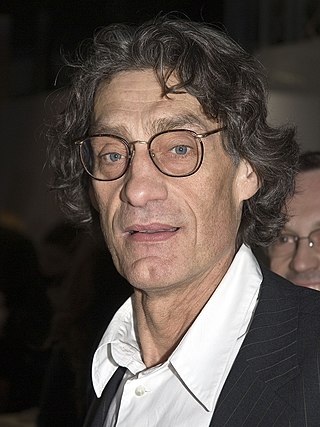
The Prague Spring was a period of political liberalization and mass protest in the Czechoslovak Socialist Republic. It began on 5 January 1968, when reformist Alexander Dubček was elected First Secretary of the Communist Party of Czechoslovakia (KSČ), and continued until 21 August 1968, when the Soviet Union and most Warsaw Pact members invaded the country to suppress the reforms.

Frank Paul Beyer was a German film director. In East Germany he was one of the most important film directors, working for the state film monopoly DEFA and directed films that dealt mostly with the Nazi era and contemporary East Germany. His film Trace of Stones was banned for 20 years in 1966 by the ruling SED. His 1975 film Jacob the Liar was the only East German film ever nominated for an Academy Award. After the fall of the Berlin Wall in 1989 until his death he mostly directed television films.

Pavel Kohout is a Czech and Austrian novelist, playwright, and poet. He was a member of the Communist Party of Czechoslovakia, a Prague Spring participant and dissident in the 1970s until he was not allowed to return from Austria. He was a founding member of the Charter 77 movement.

Ulrich Tukur is a German actor and musician. He is known for his roles in Michael Haneke's The White Ribbon, Steven Soderbergh's Solaris, the docudrama North Face based on the 1936 Eiger climbing disaster in Switzerland, and as Wilhelm Uhde in Martin Provost's biopic Séraphine.
![<i>Ernst Thälmann</i> (film) 1954 [[East Germany]] film](https://upload.wikimedia.org/wikipedia/commons/thumb/e/eb/Fotothek_df_roe-neg_0006580_014_Bild_Litfa%C3%9Fs%C3%A4ule_mit_Filmplakaten_f%C3%BCr_%22Ernst_Th%C3%A4.jpg/320px-Fotothek_df_roe-neg_0006580_014_Bild_Litfa%C3%9Fs%C3%A4ule_mit_Filmplakaten_f%C3%BCr_%22Ernst_Th%C3%A4.jpg)
Ernst Thälmann is an East German film in two parts about the life of Ernst Thälmann, leader of the Communist Party of Germany during much of the Weimar Republic, directed by Kurt Maetzig and starring Günther Simon in the title role. The first part, Ernst Thälmann - Sohn seiner Klasse, was released in 1954. It was followed by the 1955 sequel. Ernst Thälmann - Führer seiner Klasse.

The Unbearable Lightness of Being is a 1988 American romantic drama film, an adaptation of the 1984 novel of the same name by Milan Kundera. It was directed by Philip Kaufman, who co-wrote the screenplay with Jean-Claude Carrière, and stars Daniel Day-Lewis, Juliette Binoche and Lena Olin. The film portrays Czechoslovak artistic and intellectual life during the Prague Spring, and the effect on the main characters of the communist repression that resulted from the Warsaw Pact invasion of Czechoslovakia in 1968.

Winfried Glatzeder is a German television actor and playwright. He began his acting career in East Germany in the 1960s. In the early 1970s, he made his breakthrough by starring in films such as Zeit der Störche and The Legend of Paul and Paula. From 1996 to 1998, Glatzeder played the role of Commissioner Ernst Roiter in the television series Tatort. Since then, he has mainly worked in theatre and television.

Cinema of Austria refers to the film industry based in Austria. Austria has had an active cinema industry since the early 20th century when it was the Austro-Hungarian Empire, and that has continued to the present day. Producer Sascha Kolowrat-Krakowsky, producer-director-writer Luise Kolm and the Austro-Hungarian directors Michael Curtiz and Alexander Korda were among the pioneers of early Austrian cinema. Several Austrian directors pursued careers in Weimar Germany and later in the United States, among them Fritz Lang, G. W. Pabst, Josef von Sternberg, Billy Wilder, Fred Zinnemann, and Otto Preminger.

Pavel Landovský, nicknamed Lanďák, was a Czech actor, playwright, and director. He was a prominent dissident under the communist regime of former Czechoslovakia.

Familie Benthin is an East German film. It was released in 1950.
Alarm in the Circus is an East German crime film directed by Gerhard Klein. It was released in 1954.
Schlösser und Katen is an East German black-and-white film, directed by Kurt Maetzig. It was released in 1957.

The Sailor's Song is an East German black-and-white film directed by Kurt Maetzig and Günter Reisch. It was released in 1958.
An Old Love is an East German black-and-white film, directed by Frank Beyer. It was released in 1959.

Divided Heaven is an East German drama film directed by Konrad Wolf. It was released in 1964.
Dr. Ahrendt's Decision is an East German black-and-white film, directed by Frank Vogel. It was released in 1960.
September Love is an East German film directed by Kurt Maetzig. It was released in 1961.
Petr Ševčík is a professional Czech football player who currently plays for Slavia Prague and the Czech Republic national team. Having made his debut in the Czech First League in 2014, Ševčík has played most of his club football there, aside from the 2014–15 season, when he played in the second level.

Michael Kann is a German film director and actor. He was born in Berlin, East Germany, on 13 January 1950.

Jakub Landovský, is a Czech politician, lawyer, and university pedagogue, who is currently an ambassador to NATO since 5 August 2019. He had served as the Deputy Minister of Defense from 2015 to 2019.





![<i>Ernst Thälmann</i> (film) 1954 [[East Germany]] film](https://upload.wikimedia.org/wikipedia/commons/thumb/e/eb/Fotothek_df_roe-neg_0006580_014_Bild_Litfa%C3%9Fs%C3%A4ule_mit_Filmplakaten_f%C3%BCr_%22Ernst_Th%C3%A4.jpg/320px-Fotothek_df_roe-neg_0006580_014_Bild_Litfa%C3%9Fs%C3%A4ule_mit_Filmplakaten_f%C3%BCr_%22Ernst_Th%C3%A4.jpg)








